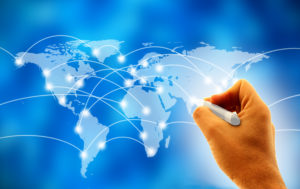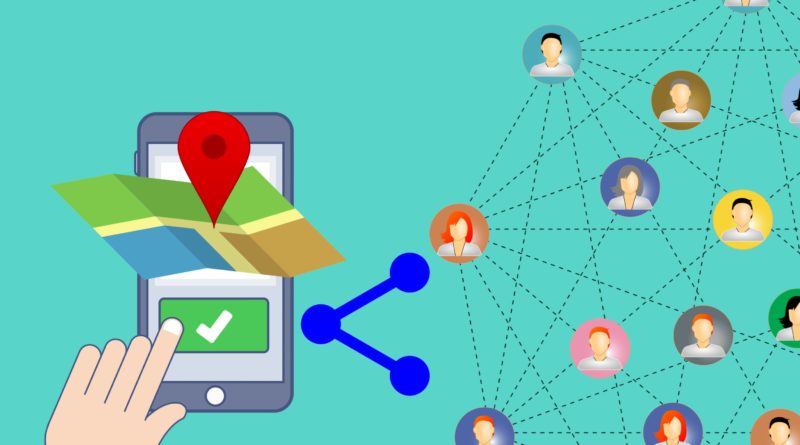What Is Cell Phone Contact Tracing?
Apple and Google just released software APIs that will enable developers to create contact-tracing apps to assist in the fight against COVID-19. What does cell-phone contract tracing mean for your privacy and how does it work?
Stopping COVID-19 in its tracks isn’t realistic, but slowing its spread is. To aid in that endeavor, complying with lockdowns and social distancing, in addition to wearing masks and gloves, goes a long way. Another preventive measure that hasn’t gotten much attention in most western countries is cell-phone contact tracing, a method that South Korea and Singapore have successfully employed to slow the spread.
What is Cell-Phone Contact Tracing?

Contract tracing has long been part of the toolkit used to fight pandemics and general disease spread. Until recently though, it has been done “by hand.” Every person that tested positive would report a list of the places they’ve been and the people they’ve interacted with over the previous two weeks. Not only is this inefficient, but also unreliable, as it relies on human memory. Besides, the likelihood of “tracers” being able to contact every person that has been in the same locations as infected people is between slim and none.
But cell-phone tracing is a different animal.
So, how does it work? Last March, Singapore released the TraceTogether app that uses Bluetooth to keep track of phones that come within a certain distance of one another. If a person tests positive for COVID-19, they can ‘tell’ the app, and then it will anonymously notify all the phones it came
into contact with the previous two weeks.
Drawbacks of Implementing a Cell-Phone Tracing Program to Fight COVID-19
Sounds pretty great, right?
Not so fast, as there are problems with the system.
The biggest drawback is that it’s voluntary. If people don’t install it, then it won’t work. To stick with our Singapore example, only 12% of Singaporeans opted to install the app. Singapore is now facing a 2nd wave, and their Prime Minister (Lee Hsien-loong) implored citizens to download and install the app to increase its effectiveness.
During a pandemic, time is of the essence, and manual tracking pales in comparison with the efficiency of cell-phone tracing — if everyone opts-in. Some governments are mandating it, others are not. Countries with strict privacy laws or citizenries that hold privacy rights dear are faced with a dilemma of whether or not to implement such a system.
Cell-Phone Tracking Privacy Concerns

There are concerns that the random keys generated by the app for each phone can be traced back to those phones, which is linked to a real person’s identity.
Apple and Google are attempting to address the privacy issues as best they can without neutering the app by promising to a) shut down the app, and b) delete all of the gathered info, after the pandemic has passed.
Ultimately it will be up to the public health authorities to develop and manage the apps that will use Google and Apple’s contact tracing API, and it’s possible that those authorities may implement their own ways to either circumvent or further protect privacy.
So what are privacy risks in regard to cell-phone contact tracing?
The main argument against installing cell-phone tracking apps is rooted in the fear that the government will strong-arm Apple and/or Google for access, and then not shut it down once the pandemic is over. After all, it’s rare that governments voluntarily relinquish their ability to gather this kind of information about citizens.
Is Cell-Phone Tracking All That Different Than What You’ve Already Consented To By Having One and Using Apps?
Until we know more about the apps, it’s hard to predict how they will infringe on people’s privacy. If it’s only tracking the phones within a range, and not locations or anything else, then it’s not a huge risk. As is, cell phones need to constantly update their location with cell towers to function, and any user who has their GPS enabled for maps or other apps are already being ‘traced’ by Google, Apple, and their carriers. Moreover, authorities can already get this information through legal channels when required, so the location tracking privacy argument isn’t that strong.
So, in a time when digital privacy issues are at the fore, we have to weigh privacy concerns against collective health concerns. Cell-phone tracing will only work with a substantial buy-in from the public, and it could save thousands, if not millions, of lives. If Google and Apple stay true to their word, and the governments don’t try and hi-jack the apps, they’re relatively benign. Unfortunately, not all corporations or governments keep their word.

